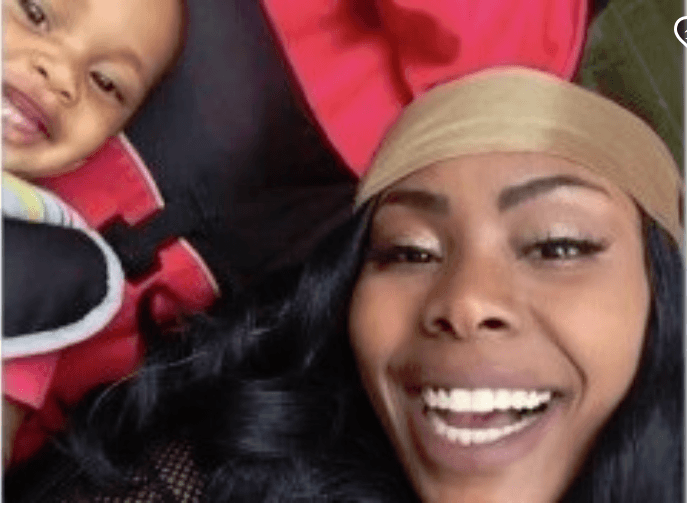By Brian Vines
My mother never went on "the welfare" because "they were doing too much," at least that's how she remembers it now, nearly 40 years later.
I was her firstborn, and at 23, she and my dad set up my crib in the room they shared in my grandmother's south-side Chicago apartment. A girlfriend persuaded my mother that the short maternity leave she took from her office job at a manufacturing company was the perfect window to get on WIC, the Special Supplemental Nutrition Program for Women, Infants and Children.
WIC is a federal program that was introduced in 1972 by former Vice President and then-Minnesota Senator Hubert Humphrey. There has been some dispute as to the program's origins. A woke contingent claims the Black Panthers' efforts to feed single mothers in the 1960s was the proof of concept for what eventually became one of our country's most successful nutrition intervention programs. Administered through the U.S. Department of Agriculture, the WIC program serves 53 percent of all infants born in the United States.
And sometimes it feels as if every one of those kids and their mother is in the benefits office, ahead of you. That wait, coupled with the frustration of lobbying for basic services for your child, is enough to push nearly anyone to the brink.
By now, a cell phone video of 23-year-old Jazmine Headley besieged by police, while lying prone and fiercely fighting to keep her 18-month-old son in her arms, has received over a million views. The video, in a word, is startling.
Characterized by NYC HRA Commissioner Steven Banks as "heartbreaking," the scene is so evocative that it forces anyone who views the wrenching two-minute-and-twenty-five-second video to search themselves for an answer to what they would do if forced into the same situation. Most people will never get a chance to find out, because this treatment is predominantly dealt to the black, brown and female among us.
To be sure, people on public assistance go to work, pay taxes and vote. But who represents them, who is their champion in New York?
Is it the progressive mayor, who built two successful campaigns on a "tale of two cities" narrative -- yet took days to condemn the actions of law enforcement officers who wrenched a toddler from his hysterical mother's arms? Perhaps it's a governor, who toured NYCHA developments and pledged to release a quarter of a billion dollars to the public housing authority at the most politically expedient point of his reelection bid.
While politicians angle for the champion of the poor photo-ops, post-election there just doesn't seem to be much in the way of follow through.
How many calls do you think it would take to prompt a thorough audit of the DMV, if new mothers were wrestled to the ground after waiting four hours to renew their driver's licenses? Can you imagine a court officer roughing up a potential juror as he/ she sat on the floor of a holding room in the courthouse? Even at the height of the holiday season, it's difficult to conjure the image of a postal worker, well, going postal on a cookie-shipping senior who is hard-pressed to get the snickerdoodles out before Santa comes calling.
These scenarios seem almost laughable, because none of these public locations are the sole domain of poor women of color. Where other agencies are coldly efficient at best and bureaucratically stagnant at worst, there is a modicum of respect that is all too often lacking from the interactions poor people have with those who stand between them and the entitlements they seek. Entitlement is a loaded term when you enter a waiting room where everyone on the payroll may see themselves as superior to you, because they're on the clock while you wait for your taxpayer-funded benefit.
Jazmine Headly is about to get paid. The coming weeks and months will no doubt reveal more about the moments before the camera phones began to roll, and anything in her background her lawyers can't bury deep enough to keep the city from using it to recast her as a provocateur instead of the victim. In the end, it may be revealed that Jazmine Headly is an angel with a dirty face.
But what truly needs cleaning up is the way under-resourced people are undervalued and disrespected by a system too entrenched in bias against those they see as powerless by virtue of needing assistance. Elected officials and outraged citizens alike would do better to put themselves in Headley's shoes rather than imagine what they would have done in her place.
Let the outrage fuel action. Demand services from people that respect other people's time and personhood. We are nearly 19 years into a new millennium -- why are we still checking boxes and filling in bubbles? We should employ the best of technology and use it in concert with human decency to deliver for those who have no recourse but to get pissed off and wait for their number to be called, while sitting on the floor.
Brian Vines is a Brooklyn-based broadcast journalist and managing editor for BRIC TV who hosts a variety of programs, including the Emmy Award-winning #BHeard Town Hall series. #BhHeard's next installment on income inequality will take place on Wednesday, February 27, at BRIC House 647 Fulton St, Brooklyn, NY 11217.




